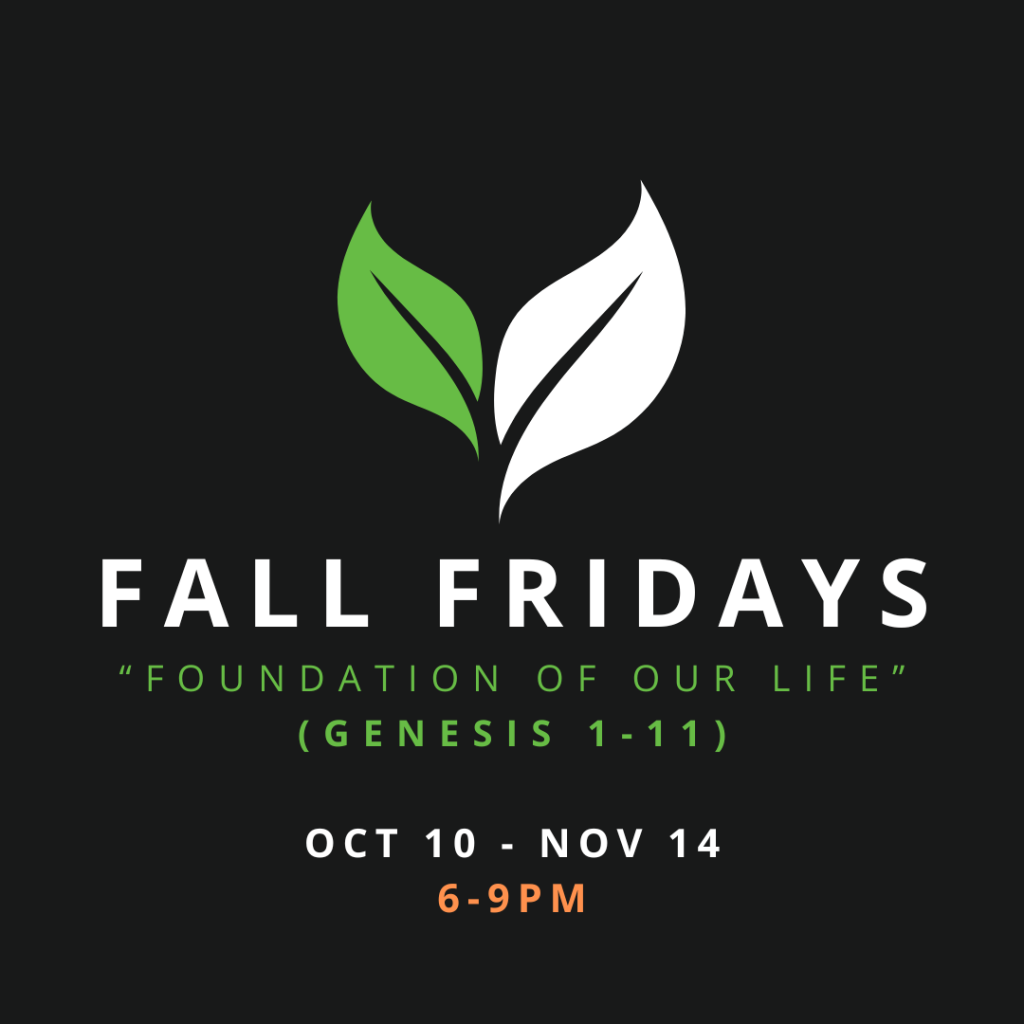This post is a summary of Week 4 of the 2025 Fall Friday series. To learn more about this series, go to the Fall Fridays Main Page.
The Right Worship
The story of Cain and Abel raises issues more serious than eating from the forbidden tree.
It begins with the issue of sacrifices offered by Cain and Abel.
Right from the beginning, the issue has to do with WORSHIP.
WORSHIP is the most important thing.
God accepted Abel’s sacrifice, but not Cain’s. Why?
Genesis does not explicitly say why. Genesis just narrates the facts.
The Bible leaves room for our theological imagination. But not imagination without bounds. The text gives us important clues.
“In the course of time Cain brought to the Lord an offering of the fruit of the ground.” (Genesis 4:3)
“In the course of time”. It was not right away.
Cain did not bring his first portions, but rather what was a surplus after the initial gathering.
“Abel for his part brought of the firstlings of his flock, their fat portions.” (Genesis 4:4)
The firstlings. The fat portions. Abel brought the very best and most valuable parts of his flocks to God.
Worship is not about the material, but about the heart and attitude you bring.
God doesn’t need any of our material. Everything is God’s anyway.
God wants your heart.
If there is no element of giving yourself, giving what’s truly precious to you, then it’s not a sacrifice.
God wants your life. God wants YOU.
In worship, what we need to give to God is our precious time.
During that precious time, we give absolutely everything to God: our attention, our focus, our worship, our whole heart.
That is a precious sacrifice.
Jesus saw the widow give two copper coins to the Temple. He also saw rich people give out of their abundance. He praised the widow, because she gave everything she had.
That is worship.
Cain did not do that.
His reaction reveals things.
Cain was not interested in giving with a heart of thanksgiving.
It was like he was fulfilling a duty. You see a crack between Cain and God.
That relationship was missing.
Cain’s Anger
Why was Cain so angry after God rejected his offering?
Here’s a good question: if God rejected both Cain and Abel’s offerings, would Cain have been so angry?
Probably not.
Cain was angry because he accepted Abel’s offering while rejecting Cain’s.
There was some sort of deep inferiority complex. An insecurity.
That exploded to the surface in anger.
Here’s another question: if God doesn’t answer your prayer, is the right reaction anger?
Instead of anger, we should wonder why God hasn’t answered. Did I do anything wrong? Am I praying with the wrong motives? Etc.
Those conflicts and disputes among you, where do they come from? Do they not come from your cravings that are at war within you? You do not have because you do not ask. You ask and do not receive because you ask wrongly, in order to spend what you get on your pleasures. (James 4:1-3)
Cain was so angry that he took Abel to the field and killed him.
The issue was not about the sacrifice.
It was about the deep anger that controlled Cain.
Sin That Lurks At The Door
The Lord said to Cain, “Why are you angry, and why has your countenance fallen? If you do well, will you not be accepted? And if you do not do well, sin is lurking at the door; its desire is for you, but you must master it.” (Genesis 4:6-7)
Sin is not what you do or don’t do. It’s much more than that.
Sin is like a lion that’s lurking at the door.
It is waiting to come in, waiting to pounce on you, eat you and devour you.
Sin is power that controls you. It is waiting for that opportunity to come in.
We should never underestimate the power of sin.
St. Paul discovered the power of that sin that lurks within us and controls us.
I do not understand my own actions. For I do not do what I want, but I do the very thing I hate… For the desire to do the good lies close at hand, but not the ability. For I do not do the good I want, but the evil I do not want is what I do. Now if I do what I do not want, it is no longer I who do it but sin that dwells within me. (Romans 7:15, 18-20)
Paul discovered his own anthropology, his make-up. And that was having sin reside within him, taking control over him.
His conclusion: only the grace of God can melt away the power of sin in his life.
Cain’s anger led to violence.
Cain did not just kill Abel out of anger. Cain killed Abel to get rid of him.
Why did he want to get rid of Abel?
Because he thought that Abel was the problem in his life.
He blamed Abel for his problems. He probably thought that his anger and actions were justified.
Instead of seeing the sin in himself, he blamed someone else.
Weak people blame others, rather than take responsibility.
That is what Cain did.
God’s Insistence on Life
Abel’s blood would haunt the ground that Cain tilled from.
It would forever curse him.
Cain was banished from the land and made to wander.
The natural consequence of all this should have been death.
That is what the law of existence would lead to.
But God again insisted on life.
God put a mark on Cain to protect him from being killed.
Cain became the first urban dweller.
God insisted on life and preserved life once again.


Leave a Reply